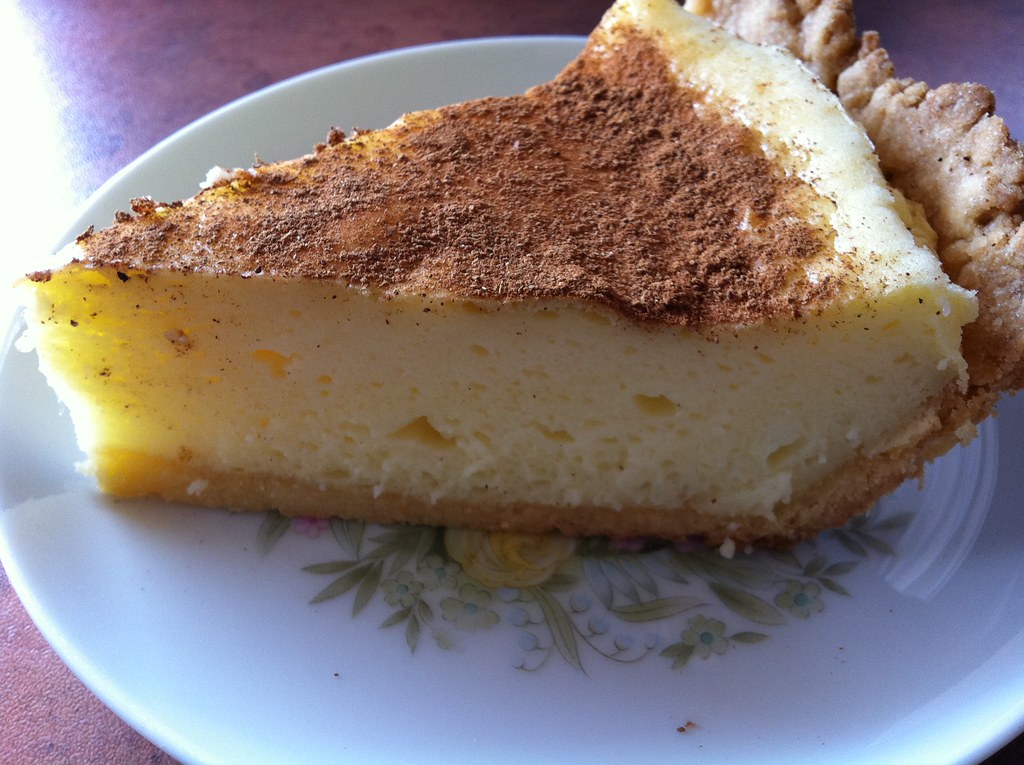Ouma Rusks. NikNaks. ProNutro. A dented can of CremeSoda past the expiry date. Vacuum-packed biltong from some or other tragic bovine. When homesickness strikes, you can wander through a bountiful land and still be in search of food.
It baffles the mind why one would yearn for mass-produced biscuits when you have Italian biscotti on your doorstep. Why choose to be assaulted by the artificial concoction of a strawberry-flavoured Fizzer when you can buy a fresh, organic strawberry from a picturesque medieval food market? What is so magical about Mrs Ball’s Chutney-flavoured Simba chips, when you can order a peshwari naan with any intriguing filling you could wish for? Wouldn’t you rather trade the calories of a gelatinous lump of Peppermint Crisp tart for a smooth, delicate texture of a German cheesecake?
I can’t speak for anyone else, but when I succumb to nostalgia, the food from my childhood becomes a safe haven, an embassy in a recipe. The logo of a Lucky Star Pilchards can is a vintage token of our heritage. The wrapping of a Wilson’s toffee is a postage stamp on a love letter for our country. I can trace my fingerprints on my identity documents with rooibos tea.
Food is memory and belonging. When I cook heritage food, it’s my way of saying: we were here, we shared food and we were loved.
Bobotie is for the openhearted. A braai is for the pioneers. Rusks refuse to be intimidated by the state of the atmosphere and will be your trustworthy companion on a bullet train or metaphorical ossewa.
Europe is showing some promising signs of summer. Any day now, it will be worth the walk down a cobbled street to buy a refreshing strawberry gelato. Yet I will yearn for a homemade frozen lolly made from Oros guava-flavoured juice concentrate. My mind will wander back to a day in 1996 where I ran barefoot on a gravel road for my first school athletics meet, when I laboriously sucked on the frozen sugary block through a hole I chewed through the plastic bag.
Or the maize pap that is also a stopgap for hungry teenagers returning from surfing at Cape Point. I’ll remember that moment of bliss in the Valley of a Thousand Hills when a Gogo sold me a freshly picked mielie and took both my hands in hers as she passed it to me.
Pannekoek was a delightful midweek supper after a Lowveld thunderstorm. They give the sense of community at the church bazaar where the batter is whisked with a (clean) garden spade in a (cleaned) steel drum. When I smell cinnamon, I can hear the joyful cries of hadedas and of children running on a rugby field.
I am in the business of audio memorials and when my clients and their families submit eulogies, they recount beautiful memories of their loved ones. Many of these memories are intertwined with food.
There’s the story of the lady who loved to have friends over for coffee, so much so that she drank eight cups a day. The Spoornet engineer who set the table with a tablecloth and silverware each day to enjoy the lunch his wife packed for him. Cousins remember their favourite uncle teaching them how to play cricket and how the man of the match was rewarded with an extra topping of kaiings on freshly baked bread. There’s the famous milk tart baked by the matriarch every Sunday for tea, and when someone else attempted the recipe the “damn thing didn’t even rise an inch”.
Death reminds us how important the people are with whom we break bread. It also reminds us that some of our fellow citizens are not as fortunate to have such delicious memories to dip into when feeling low. The Integrated Food Security Phase Classification’s (IPC) 2021 report says more than 13-million South Africans suffer from food insecurity because of the pandemic’s effect on food prices and unemployment.
I’ve travelled to many countries and am richer for it. Yet I haven’t taken the leap to cross the systemic border of inequality in the country of my birth. It’s a shame that that is so hard to stomach.



